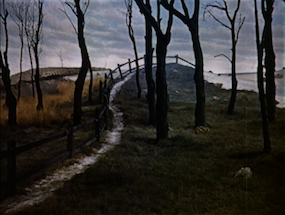COMUNICATO STAMPA GUE/NGL
Brussels, 26 October 2015
Following the visit of a delegation of five GUE/NGL MEPs to Moscow last week, GUE/NGL is calling for all European and Russian parliamentarians to be removed from the blacklists that were established on both sides earlier this year, and for direct dialogue to be resumed between the EU and Russia.
In Moscow, the GUE/NGL delegation met with representatives of the State Duma, the Federation Council, the Eurasian Economic Commission, the Federation of Independent Trade Unions and civil society activists.
GUE/NGL President, Gabi Zimmer, stated: “For several months now, the official contact between the European Parliament, the State Duma and the Russian Federation Council have been frozen. In view of the dramatic developments in many regions of the world which can only be solved through coordinated policies of the global community, we as the left group in the European Parliament took initiative to contribute to restoring dialogue between the EU and Russia.”
“Parliaments should play a key role in this situation of tense relations between the EU and Moscow. The delegations of the European Parliament and the State Duma must urgently resume their direct dialogue. Therefore, as a first step, we call for the immediate withdrawal of all parliamentarians from the blacklists of the EU and the Russian Federation,” Ms Zimmer continued.
GUE/NGL Vice-President, Neoklis Sylikiotis, commented: “The sanctions that were imposed on Russia by the EU have negative consequences on the people. It is highly important to find a peaceful solution and the parliaments have a very important role to play in this situation. Unfortunately, the sanctions that were imposed on the members of the State Duma exclude any possibility of resuming the direct dialogue with the EU. Therefore, we urge the EU to withdraw the parliamentarians from the blacklist and normalise political relations with Russia.
Italian MEP, Barbara Spinelli, also commented: “The situation we witnessed in Moscow is cause for profound concern. Each initiative of the Russian government – the reaction to NATO expansion at the EU’s Eastern borders in the Ukraine, the Eurasian Economic Community, the Russian military intervention in Syria – is interpreted in Europe as a provocation or a disturbing factor, and this misconception contributes to deep resentment among the Russian elite.”
Ms Spinelli continued: “The Cold War is back, but without the codes of conduct and the deconflicting elements which distinguished it. Instead of a sober evaluation of Russia’s interests, EU member states tend to passively fall in line with the US administration. The post-war ‘roll-back’ doctrine is being revived, rather than Cold War or containment policies. This is perhaps in the interest of the US administration, whose aim is either the preservation of the unipolar world disorder established after the end of the Cold War or improvised bilateral arrangements with Moscow behind Europe’s back. In any case, it’s not in the interest of the European Union”.
Vice–Chair of the EU-Russia Delegation and GUE/NGL MEP, Jiří Maštálka, added: “Apart from high-level political diplomacy we have to support and reinforce popular diplomacy. For example, in the field of culture and science in which there is a long tradition of mutually beneficial relations between the EU and Russia. These include the cooperation with RUDEN (People’s Friendship University of Russia), the student exchange programme with the Volgograd State University, the Erasmus Plus programme, and the common activities of the sister cities of Volgograd, Russia and Ostrava, Czech Republic. Students, young artists and talented scientists must not be taken as hostages of the difficult current political situation”.
German MEP, Helmut Scholz, also participated in the mission to Moscow.
